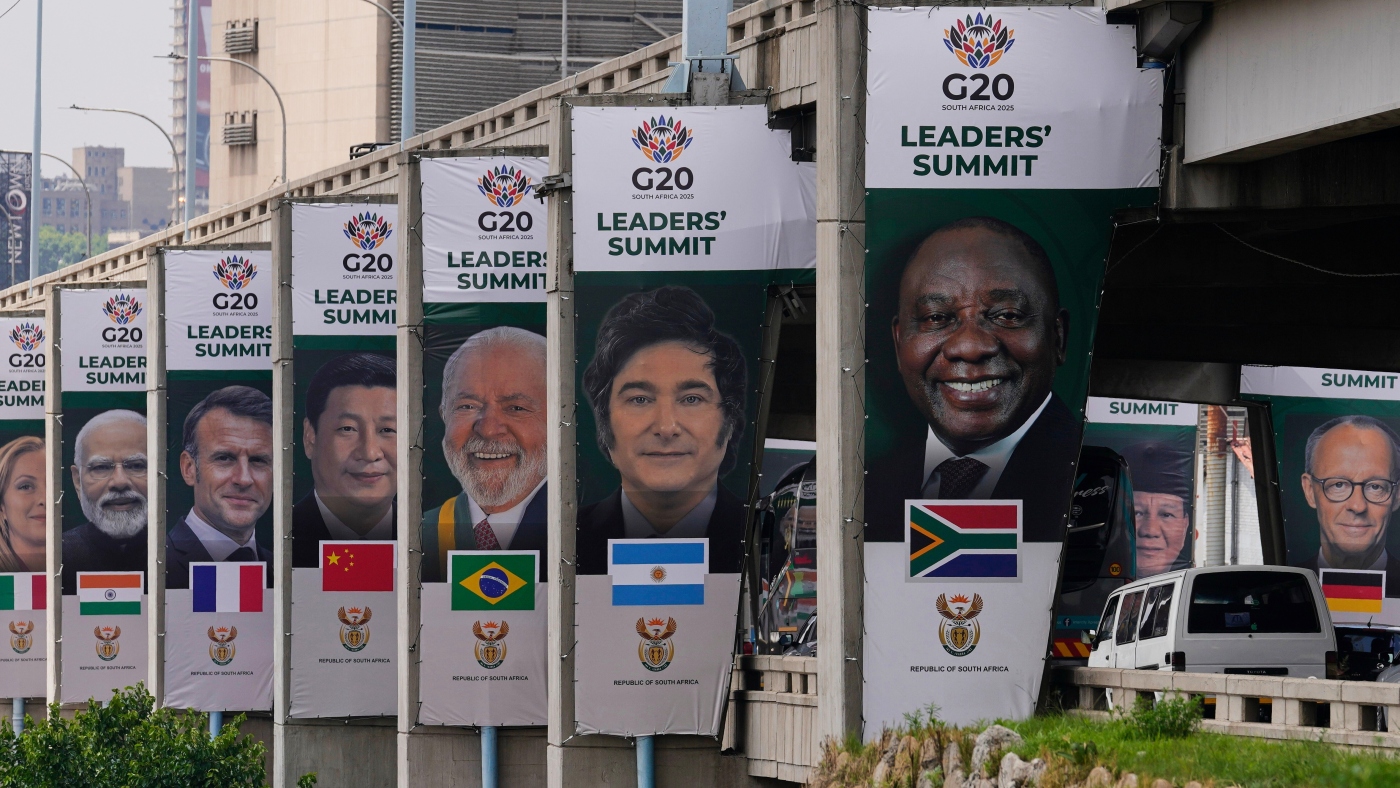G20 Summit in South Africa: US Boycott Deepens Global Fractures Amid Local Tensions
Johannesburg, South Africa is currently at the center of global political discourse as it hosts the G20 Leaders' Summit, an event notably shadowed by the conspicuous absence of the world's largest economy, the United States. The Trump administration has opted to boycott the summit, citing contentious race-based claims and strong objections to the summit's pronounced diversity, equity, and inclusion (DEI) agenda.
Trump's Allegations and South Africa's Response
Since his return to office, former President Trump has repeatedly accused the South African government of policies such as land confiscation from white owners and allowing violence against white Afrikaners. These allegations have been firmly refuted by the South African government, which has made persistent but unsuccessful attempts to clarify the situation with the U.S. administration. Trump's stance was stark: “South Africa shouldn't even be in the Gs anymore, because what happened there is bad.”
South African President Cyril Ramaphosa has maintained a composed demeanor amidst these diplomatic tensions, responding stoically to the U.S. boycott with the statement, “Their absence is their loss.” Nonetheless, the boycott undeniably casts a significant shadow over South Africa’s standing on the international stage.
Key Absences Mark a Fractured Global Moment
Adding to the list of notable absences, Argentine President Javier Milei announced he would not attend in solidarity with Trump. Chinese President Xi Jinping, leader of the world’s second-largest economy, is also missing, though his absence is attributed to a general reduction in international travel rather than a political slight. Furthermore, Russian President Vladimir Putin is unable to attend due to an International Criminal Court arrest warrant related to the conflict in Ukraine.
William Gumede, an associate professor at Johannesburg's Witwatersrand University, views the summit's controversies as emblematic of a fractured global landscape. He remarked to NPR that it feels “almost an alternative summit without China and without America,” highlighting the profound reordering underway in international relations. The summit's core themes of “solidarity, equality, sustainability” have been publicly deemed anathema by the U.S. administration, with Secretary of State Marco Rubio specifically criticizing South Africa for pushing a “DEI and climate change” agenda.
US-South Africa Spat Deepens Over Delegation
As foreign dignitaries, including British Prime Minister Keir Starmer, began arriving, the U.S.-South Africa diplomatic dispute intensified. President Ramaphosa revealed an eleventh-hour request from the U.S. to send a delegation, expressing guarded optimism: “The United States being the biggest economy in the world, needs to be there, so it is pleasing there is a change of approach.”
However, White House Press Secretary Karoline Leavitt swiftly countered Ramaphosa's statement, asserting firmly: “The United States is not participating in official talks at the G20 in South Africa.” She also criticized Ramaphosa’s comments, stating, “I saw the South African president running his mouth a little bit against the United States and the president of the United States and that language is not appreciated.” Leavitt clarified that a chargé d’affaires – a junior diplomatic official – would attend solely for the symbolic handover of the G20 rotating presidency, an explanation Ramaphosa’s spokesman publicly rejected on X, stating, “The president won't hand over to a chargé.” This disagreement raises questions about whether a joint declaration will be signed by all attending nations at the summit’s conclusion, a document the U.S. is unlikely to endorse.
Local Discontent and Societal Divisions
Beyond the international wrangling, the summit has also sparked significant domestic discontent. Johannesburg residents have voiced frustration over the city's infrastructure receiving a superficial cleanup solely for foreign guests, despite years of crumbling services, chronic electricity shortages, and water issues. Journalist Redi Tlhabi, in her popular podcast, critiqued the sudden improvements: “Oh they are fixing, the traffic lights are up…the grass has been cut, all for? G20... You're showing off for visitors but you have no regard for the people that live in that city.”
Local tensions have also been highlighted by various protests. Ahead of the summit, thousands of women, dressed in black, observed a day of action against gender-based violence, peacefully protesting femicide and high rates of violence. Additionally, Trump's race-based claims have reignited the debate around race relations within South Africa, manifesting in a “war of billboards.” One right-wing Afrikaans group, aligning with Trump's narrative of white persecution, erected billboards welcoming delegates to “the most race-regulated country in the world,” referencing affirmative action laws. In contrast, a progressive Afrikaner association launched its own campaign, featuring images of the beloved Springboks rugby team, with white Afrikaner players carrying their Black captain, Siya Kolisi, alongside a sarcastic tagline: “Terrible things are happening in South Africa.”

